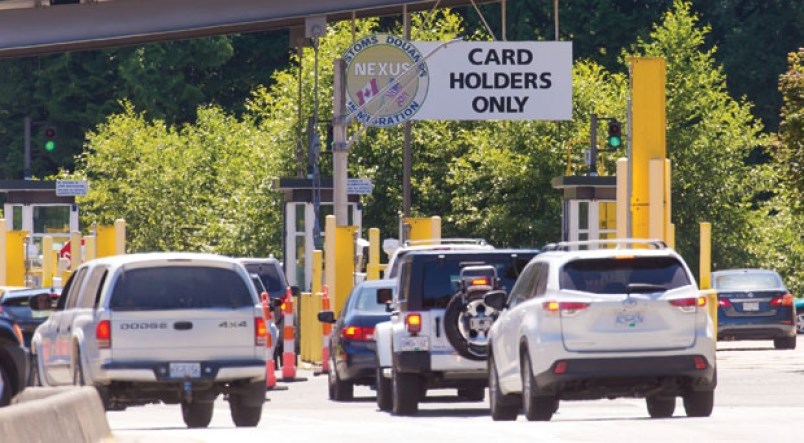The closure of the Canada/U.S. border due to the COVID-19 pandemic is having numerous effects to the residents of Point Roberts.
Armene Belless has lived in Point Roberts most of the last 25 years.
She said in the past few weeks Point Roberts has felt like a ghost town.
“There was only one or two cars at the gas stations and about three or four customers at the Marketplace grocery store that was manned by only a few employees,” she told the Optimist via email. “The local Point Roberts snowbird-residents will soon return but meanwhile all the small businesses at the Point will be hurting. Many businesses are already only open two or three days a week.Point Roberts averages about 90,000 crossings a month. Less in the winter, heavier in the summer. This border closure will be devastating for many folks at the Point.”
Mark Robbins, president of the Point Roberts Taxpayers’ Association said it is exceedingly quiet on the streets.
“The International Marketplace, Larry's Liquor Locker, gas stations, and Nielson's Building Center are open and UPS and Fedex are delivering parcels as usual,” he said. “Saltwater Cafe and the Shell Station are doing take-away food service, as is our seniors’ activity program (‘seniors’ lunches’ on Wednesday and Friday). Our food bank is also operating every Wednesday as usual, except that it is operating as a sort of drive-through service in front of the Community Center. Unfortunately the library is closed. Our county parks are open and largely deserted.”
Robbins said their medical clinic is also operating as usual – three days a week, but have not the testing capacity nor ability to accommodate infectious patients.
“They ask that patients call ahead and if they have any suspicious COVID-19 symptoms, staff will meet them in the parking lot,” said Robbins. “There has been talk of erecting a heated triage tent outside of the clinic, but I haven't seen it yet. If anyone has serious COVID-19 symptoms, it would fall upon our EMS (under the fire department) to respond to 911 calls and make a determination about transporting the patient to Bellingham.
Robbins said those with reasonable need to cross the border are doing so, for medical and veterinary appointments either in Canada or in ‘mainland’ Washington.
“As far as I can tell from online discussions the mood is Okay,” he added. “Some people like myself are actually enjoying the solitude and ability to focus on deferred projects around the house.”
The border between the U.S. and Canada, and the U.S. and Mexico was closed to all non-essential traffic on March 21.
Prohibited, “non-essential travel” is mainly travelling for tourism including sightseeing, recreation, gambling, or attending cultural events. At this time, the travel restrictions do not apply to air, freight rail, or sea travel between the U.S. and Canada.



